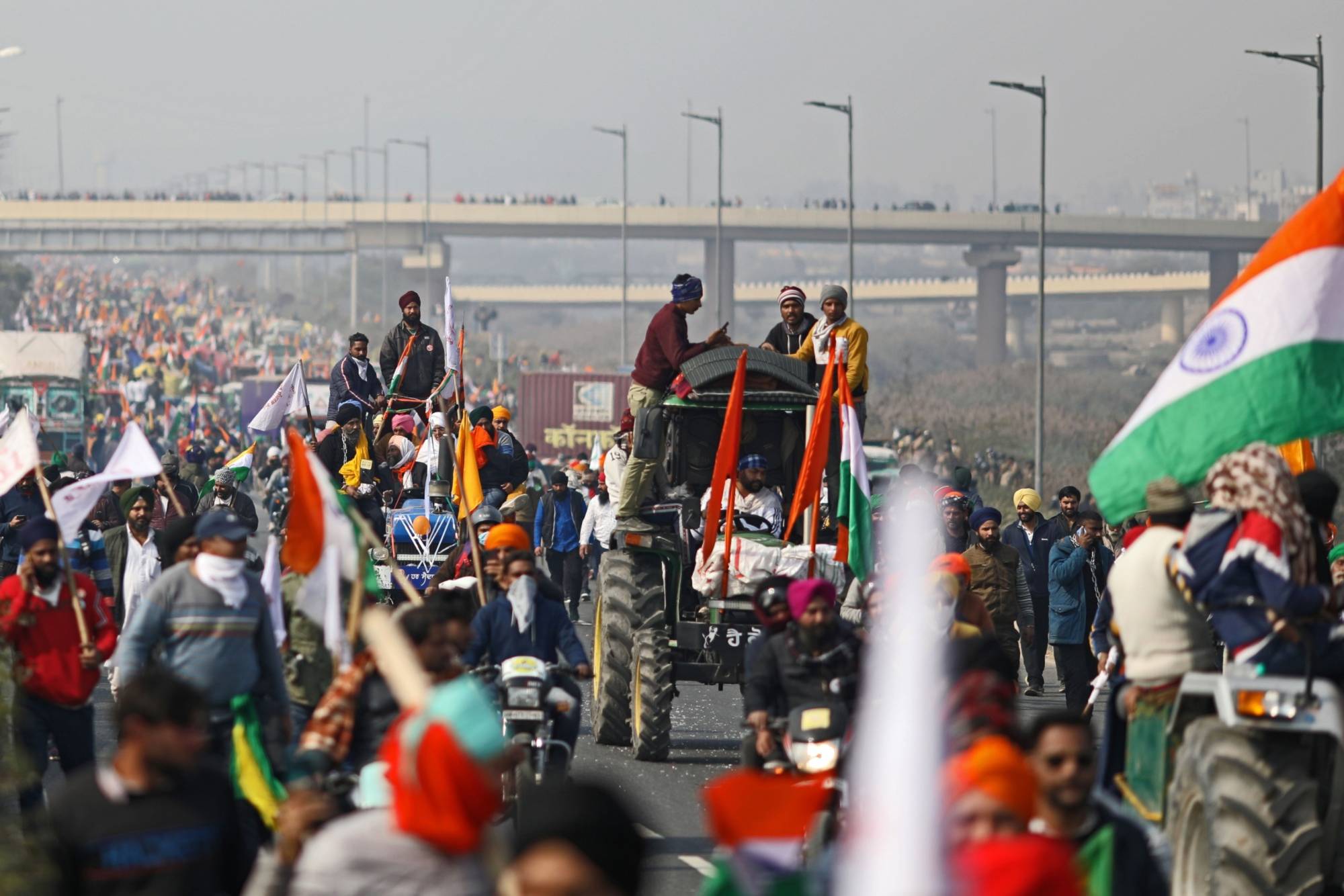Hundreds of thousands of farmers are swelling protests along arterial roads into the capital and other cities across India. The police and paramilitary forces have deployed up to 50,000 personnel, as well as barricades, barbed wire and riot-control vehicles. The United Nations is urging restraint. And each day, more farmers and tractors arrive to join the disgruntled ranks.
Prime Minister Narendra Modi is no stranger to sparking public anger with his determination to push through reforms, but this may be his most vital standoff yet. The farmers are demanding he repeal laws passed in September that they say will ruin their livelihoods. The government insists the new policy will benefit the growers and refuses to withdraw the legislation. After months of protests, more than 10 rounds of talks and a Supreme Court order to temporarily suspend the laws, the government says it will consider some amendments and could delay implementation by as much as 18 months. But the agitators are in no mood for compromise.
"We’re not going anywhere. We are ready to sit here for years if needed. The government has to listen,” said Balwinder Singh, 50, who normally grows rice and wheat on three acres of land in Punjab. He has been protesting since Nov. 26 on the Singhu border, the epicenter of the demonstrations outside Delhi. "We can survive the coronavirus but not these laws.”



